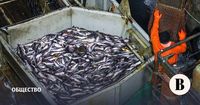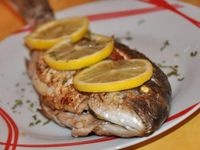The Federal Antimonopoly Service (FAS) of Russia has proposed a significant overhaul in the fish market by introducing standards for the purchase and sale of fish products through exchange trading. This initiative aims to stabilize fish prices and diminish the influence of intermediaries, who have been driving up costs for consumers.
According to the FAS, a critical issue in the market is the high number of intermediaries involved in the supply chain, which can reach up to six. These intermediaries apply markups that can vary between 5% and 50%. Consequently, fish sold in stores can become 2 to 3.5 times more expensive than the initial price set by fish producers.
The agency specifically highlighted that these intermediaries have a pronounced impact on the prices of popular fish species such as pollock, cod, hake, herring, and pink salmon. The analysis conducted by the FAS revealed that the bulk of fish caught in Russia is sourced from the Far East, while consumer demand is predominantly concentrated in the Central Federal District. This geographical disparity complicates logistics and distribution, further exacerbating price increases.
To tackle these issues, the FAS has proposed several measures. One of the key suggestions is to mandate fish-producing companies to sell a portion of their catch through the exchange. Additionally, trading networks would be required to purchase established volumes directly from producers. This approach aims to streamline the supply chain and reduce the number of intermediaries involved.
Alongside these proposals, the FAS also suggested the introduction of sales standards for fish producers and minimum purchase volumes for retail chains. Other measures include the registration of over-the-counter transactions, the development of aquaculture in the Central Federal District, and the promotion of fish markets and fairs to enhance direct sales channels.
Moreover, on April 2, 2025, it was announced that the FAS would be monitoring the reduction of payment terms for suppliers of perishable products. Experts believe that adhering to these new conditions would bolster the financial stability of suppliers and ensure that products remain accessible to consumers.
In a related note, as winter comes to an end, many vehicle owners are beginning to use their cars more frequently. Maxim Tishakov, an expert from the Institute of Economics and Law at Moscow State Pedagogical University (MGPU), emphasized the importance of strictly adhering to traffic rules during this busy period. He warned that violations could lead to fines, underscoring the need for responsible driving.
In another development, parents of children under three years old, as well as those raising multiple children under six, can benefit from a program that provides free access to medications participating in the subsidized drug provision initiative. This program aims to alleviate the financial burden on families with young children, ensuring they have access to necessary healthcare resources.
Despite ongoing sanctions, foreign hedge funds have begun to invest in Russia, bringing in what are referred to as "cowboy money." While the volume of these investments remains relatively small, their influx is already reflecting in the dynamics of OFZ prices and the ruble's exchange rate. This development indicates a potential shift in the financial landscape, as international investors show interest in the Russian market.
As the FAS continues to implement its proposed changes to the fish market and monitor payment terms for perishables, it remains to be seen how these initiatives will affect both the supply chain and consumer prices. The agency's efforts to streamline the market could lead to more competitive pricing and greater transparency, ultimately benefiting consumers across the country.





